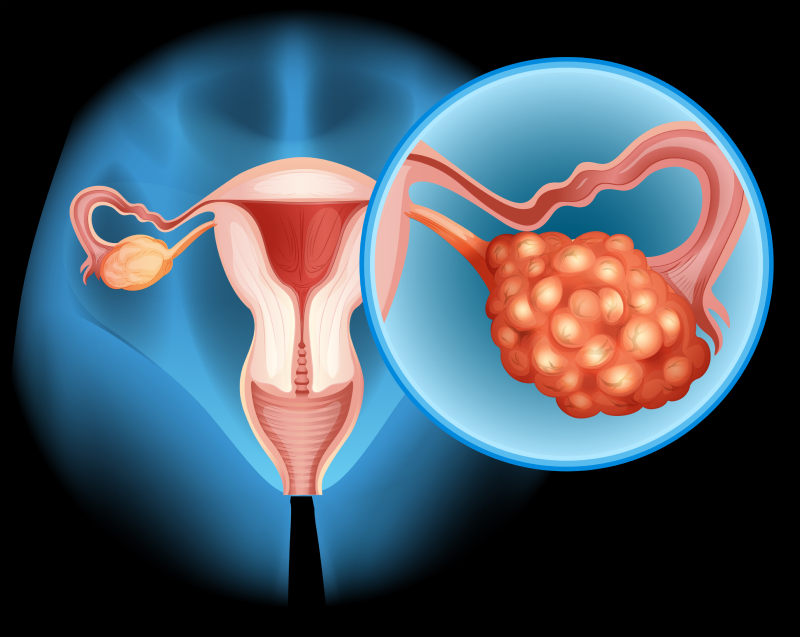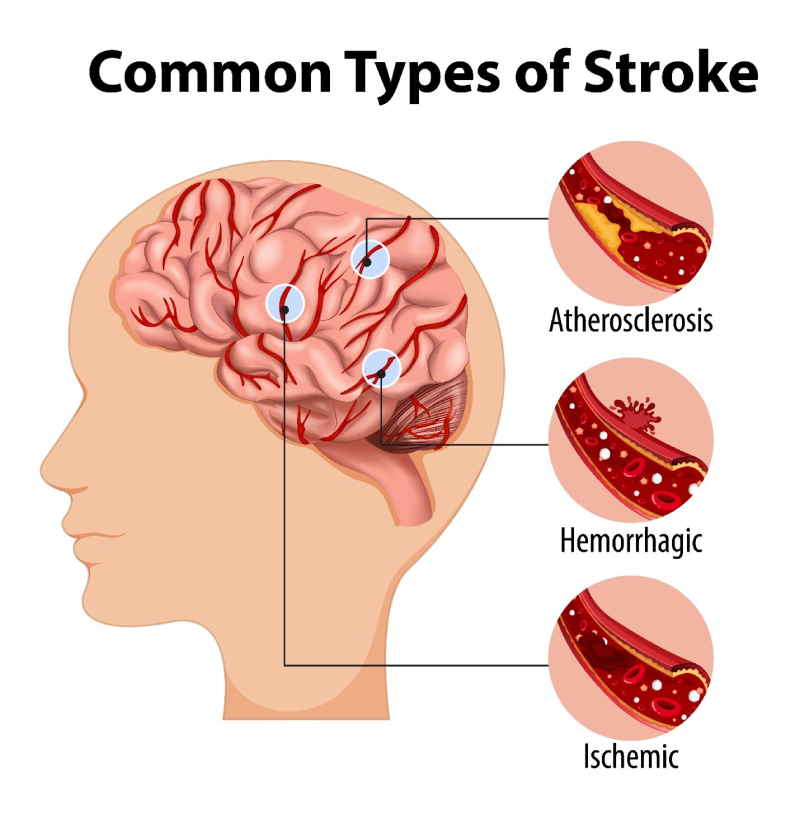Problems Women May Face Due to PCOS

Livefit4ever,
Medically Reviewed by Dr. Himabindu Annamraju,
October 04, 2023

Polycystic Ovary Syndrome (PCOS) is a complex hormonal disorder affecting many women worldwide. It is characterized by irregular menstrual cycles, excess androgens, and cysts on the ovaries. While the exact cause of PCOS remains unclear, its impact on women’s health and well-being is significant. In this article, we will delve into the various problems women experience due to PCOS and provide valuable insights based on both expertise and personal experiences.
What is PCOS?
Let’s first understand what PCOS is and how it affects the body. PCOS is a hormonal disorder that affects the reproductive system, leading to an imbalance in sex hormones. This condition often results in irregular menstrual cycles, high levels of androgens (male hormones), and multiple small cysts on the ovaries.
Hormonal Imbalance and Irregular Menstrual Cycles
One of the primary issues women face due to PCOS is hormonal disturbances, leading to abnormal menstrual cycles.
Irregular periods and PCOS: The disrupted hormonal patterns can cause infrequent or prolonged menstrual periods, making it challenging for women to predict their ovulation and conceive if desired. This can be distressing for those trying to have a baby. Even for the women not planning pregnancies, the menstrual disturbances can be quite inconvenient as they impact on their day-to-day life.
Excessive Hair Growth (Hirsutism)
PCOS can lead to hirsutism, a condition characterized by excessive hair growth on the face, chest, abdomen, and back. This can significantly impact a woman’s self-esteem and confidence, leading to feelings of self-consciousness. Managing hirsutism often requires a combination of cosmetic treatments and hormonal therapy.
Acne and Skin Problems
Another common problem faced by women with PCOS is persistent acne and skin problems. The hormonal imbalances associated with PCOS can trigger increased sebum production and inflammation, leading to frequent acne breakouts. Proper skincare and medical treatment are essential to manage this condition effectively.
Weight Gain and Difficulty Losing Weight
PCOS and Weight Gain: Many women with PCOS struggle with weight gain and find it challenging to lose excess weight. The hormonal imbalances can lead to increased insulin resistance, making it more difficult for the body to regulate blood sugar levels. This in turn means that diets generally don’t work, and its harder for the women to shed their extra weight.
PCOS Complications
Insulin Resistance and Type 2 Diabetes Risk
The risk of diabetes increases with PCOS. Insulin resistance is a common feature of PCOS, where the body’s cells become less responsive to the insulin, hence leading to higher blood sugar levels. This condition increases the risk of developing type 2 diabetes over time. Women with PCOS should monitor their blood sugar levels regularly and adopt a healthy lifestyle to reduce the risk of diabetes.
Mood Swings and Emotional Distress
PCOS and Mental Health: The hormonal fluctuations caused by PCOS can lead to mood swings, anxiety, and depression.
Women may experience emotional distress due to the physical symptoms and the challenges of managing the condition. Seeking support from healthcare professionals and therapists can help in coping with these emotional challenges.
Sleep Disorders
Sleep disorders are also prevalent among women with PCOS. The hormonal imbalances and associated symptoms, such as hirsutism and acne, can lead to increased stress levels, which may disrupt sleep patterns. It’s essential to establish a regular sleep routine and seek medical advice if sleep problems persist.
Infertility and Difficulties in Conceiving
PCOS and Fertility: One of the most significant challenges women face due to PCOS is infertility or difficulties in conceiving. The irregular menstrual cycles and hormonal imbalances can make it harder for women to ovulate regularly, reducing the chances of getting pregnant. However, with proper medical intervention and lifestyle changes, many women with PCOS can still conceive and have a healthy pregnancy.
If you have difficulty getting pregnant with PCOS – then read the article “Can I get Pregnant with PCOS”
Increased Risk of Cardiovascular Diseases
Women with PCOS have an increased risk of developing cardiovascular diseases, such as high blood pressure and heart disease. It is crucial for women with PCOS to adopt a heart-healthy lifestyle, including regular exercise, a balanced diet, and stress management.
Excess Androgen and Hair Loss
Apart from hirsutism, PCOS can also cause hair loss or thinning of hair on the scalp, similar to male pattern baldness. This can be distressing for women and may require medical treatments and hair care regimens to manage hair loss effectively.
Eating Disorders and PCOS
Some women with PCOS may develop eating disorders, such as binge eating or emotional eating, as a coping mechanism for the physical and emotional challenges associated with the condition. Seeking professional help and support groups can be beneficial for those struggling with eating disorders.
Abnormal Cholesterol Levels
PCOS and Cholesterol: PCOS can lead to imbalanced cholesterol levels, including high levels of LDL (low-density lipoprotein) cholesterol and low levels of HDL (high-density lipoprotein) cholesterol. These abnormalities can increase the risk of cardiovascular diseases and should be monitored closely by healthcare providers.
Skin Discoloration (Acanthosis Nigricans)
Acanthosis Nigricans is a skin condition characterized by dark patches or skin discoloration, commonly appearing in the armpits, neck, or groin. Women with PCOS may experience this condition due to insulin resistance. While it is not harmful, treating the underlying insulin resistance can improve the skin discoloration.
Increased Risk of Endometrial Cancer
Women with PCOS have a higher risk of developing endometrial cancer due to irregular menstrual cycles and unopposed estrogen exposure. Regular gynecological check-ups and appropriate medical management can help reduce this risk.
Pelvic Pain and Ovarian Cysts
PCOS and Pelvic pain: Some women with PCOS may experience pelvic pain due to the presence of ovarian cysts. Tiny peripheral follicular cysts on the ovaries are a characteristic feature of PCO. They generally do not cause any pain or discomfort. However, some cysts can be larger in size and can cause discomfort or pain. These may require medical evaluation and management.
Excessive Sweating (Hyperhidrosis)
Hyperhidrosis, or excessive sweating, is one of the PCOS complications that some women may encounter. The exact cause of this symptom is not clear, but it may be related to hormones, excess weight gain and increased stress levels.
Psychological Impact and Coping Strategies
Living with PCOS can have a profound psychological impact on women. Coping with PCOS or managing PCOS and Mental well-being is often challenging for some women. Coping strategies, such as mindfulness, support groups, and counselling, can help women manage the emotional challenges associated with the condition.
Challenges in Hormonal Therapy
Hormonal therapy is a common treatment for PCOS, but it may present challenges for some women. Finding the right balance of medications and managing potential side effects can be a trial-and-error process.
Impact on Fertility Treatments and Assisted reproductive technology
Women with PCOS who undergo fertility treatments, such as in vitro fertilization (IVF), may encounter unique challenges. Understanding how PCOS can affect fertility treatments is essential for making informed decisions.
Lifestyle Modifications for PCOS Management
Lifestyle modifications, including regular exercise, a balanced diet, stress management, and sufficient sleep, play a crucial role in managing PCOS and its symptoms. It is advisable to exercise regularly at least 4-5 times a week to help balance the hormones. Dietary advice should be sought from experts, to reduce the insulin resistance – which in turn will reduce the risk of developing diabetes later in life.
Support and Resources for Women with PCOS
Finding support and reliable resources can be instrumental in helping women cope with PCOS effectively. Support groups, online communities, and educational websites can provide valuable information about PCOS complications and encouragement. Some are mentioned below:
- PCOS Awareness Association- https://www.pcosaa.org/
- PCOS Support online- https://www.mypcosteam.com/
FAQs
Can PCOS be cured completely?
No, PCOS cannot be cured completely, but it can be managed effectively with medical treatments and lifestyle changes.
Does PCOS always lead to infertility?
No, PCOS does not always lead to infertility. With proper management and medical intervention, many women with PCOS can conceive and have a healthy pregnancy.
Is PCOS a hereditary condition?
While the exact cause of PCOS is not known, genetics may play a role in its development. Women with a family history of PCOS may have an increased risk of developing the condition.
Can PCOS be diagnosed through symptoms alone?
Diagnosing PCOS requires a thorough evaluation by a healthcare professional, including a review of symptoms, medical history, and physical examination. Additional tests, such as hormone level assessments and ultrasounds, may be necessary for a definitive diagnosis.
Can PCOS be managed without medication?
Lifestyle modifications, such as regular exercise and a balanced diet, can help manage PCOS symptoms and reduce POCS complications, but medication may be necessary in some cases to address hormonal imbalances and other associated issues.
Can PCOS go away after menopause?
The symptoms of PCOS may improve after menopause due to changes in hormonal levels, but the condition itself does not go away entirely.
Bottom Line
PCOS is a complex and challenging condition that affects many women, impacting their physical and emotional well-being. From hormonal imbalances and irregular menstrual cycles to fertility issues and psychological distress, the problems faced by women due to PCOS are diverse and require comprehensive management. By understanding the condition, seeking timely medical support, and making lifestyle changes, women with PCOS can lead fulfilling lives and minimize the impact of the condition on their health and happiness.






